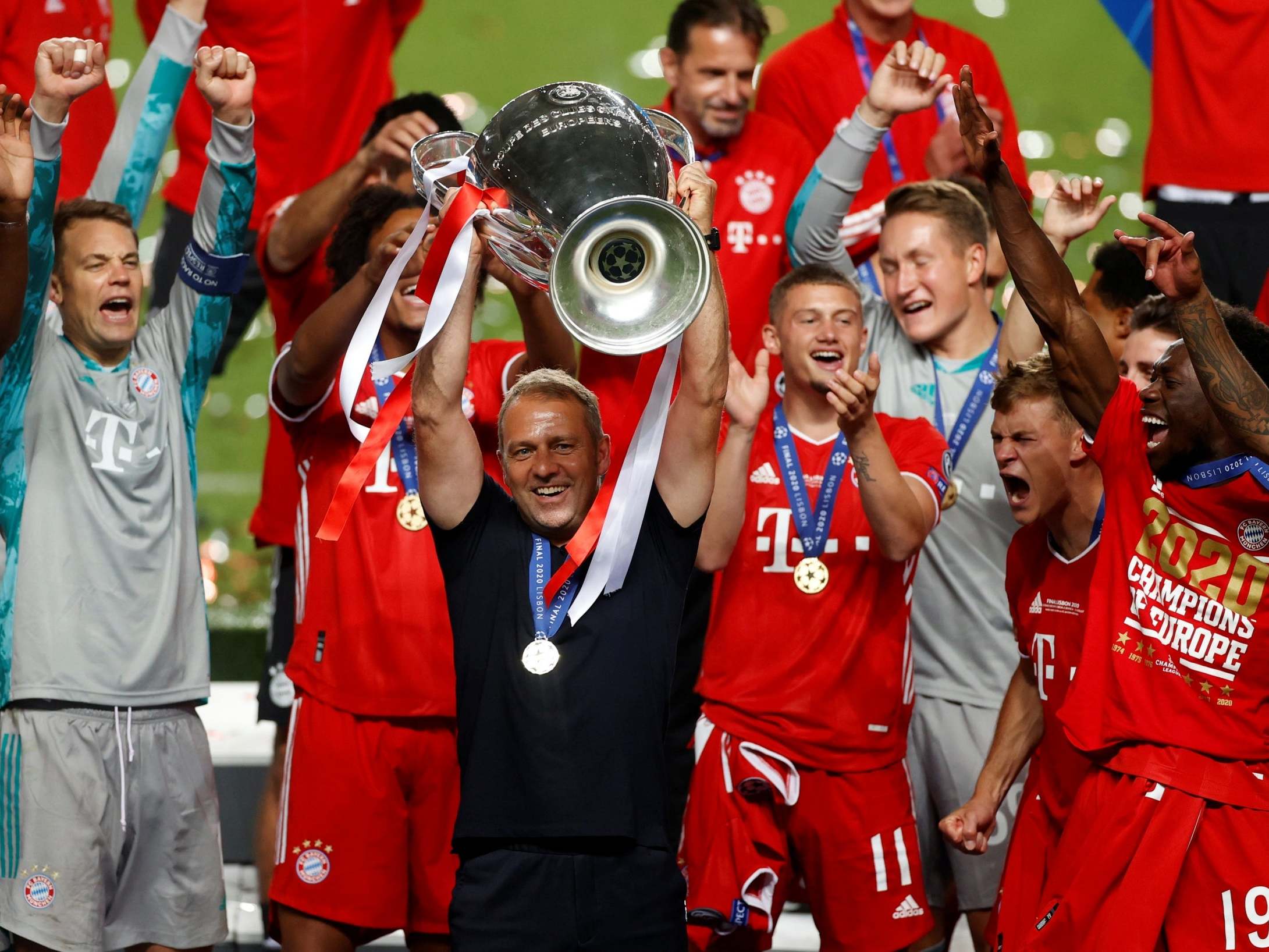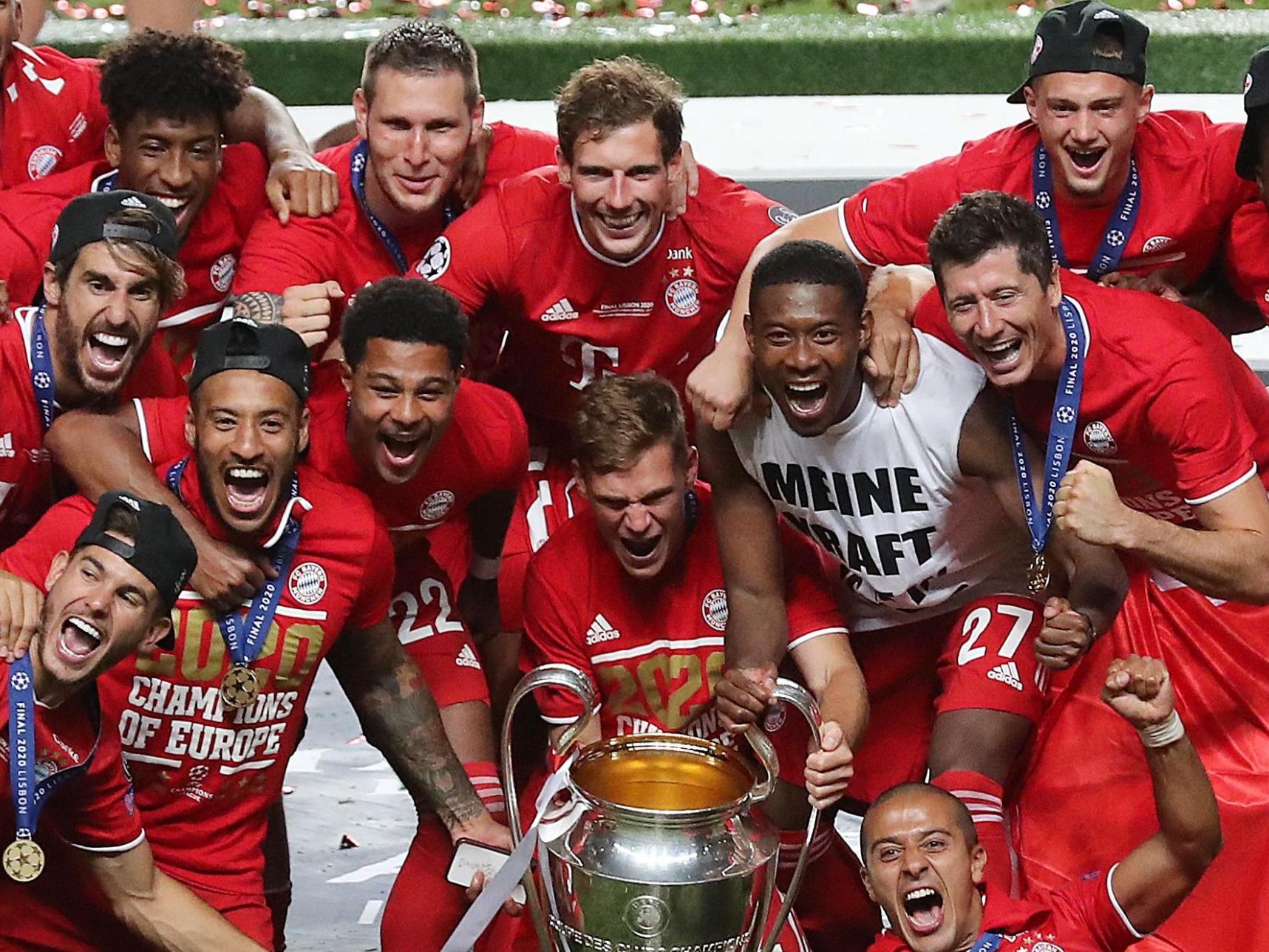What will be the legacy of Bayern Munich’s Champions League winners?
Bayern have gone from a situation where they were in danger of winning nothing to one where they’ve won everything

A moment that summed up Bayern Munich’s season, rather fittingly, came in its very last minute.
With Hansi Flick’s side 1-0 up against Paris Saint-Germain, and in a situation that would understandably have had any team preciously guarding the lead that delivers the prize they want most… they were doing the total opposite. They were charging forward, playing so high, creating the game's better chances. Anyone would have thought it was PSG that were on the brink of deliverance, they were pushed back that far. It was quite a statement.
Bayern weren’t so much looking to win with style, however, but just looking to win in the way they knew best. This was exactly the approach the players had told Flick they felt best playing when he consulted them on taking over from Niko Kovac. As with that managerial decision, Bayern were rewarded for their bravery.
It is remarkable to consider how different the side looked in those first few months of the season. Kovac's cautious reactive football, and the results it brought, were the total opposite of what followed. What a waste of talent that might have been.
Bayern have gone from a situation where they were in danger of winning nothing to one where they’ve won everything. They’ve gone from a run where they were dropping points every second game to one where they’ve just gone and won every game.

That emphasises just how bad a choice Kovac was for the club. Because, as impressive as the side’s perfect turnaround under Flick was, the reality is the ingredients were all there. Hence so many players right through the team - from Manuel Neuer to Jerome Boateng to Thiago Alcantara to Robert Lewandowski - ready for their best ever form. It just took clarity, composure and the right type of management. Flick offered that. He didn’t need to offer a revolution.
This is also why feats like a treble, a first ever perfect Champions League season, 21 successive wins in all competitions and 30 games unbeaten aren’t quite being gushed about in the way they usually would be.
It is conspicuous Flick's side are not being talked about in the way Barcelona 2008-11 were, or even Bayern 2012-13.
There’s first of all the fact Covid-19 has so distorted the calendar. Bayern are statistically the first ever club to achieve a perfect European Cup or Champions League season by winning every game, but then it hasn’t been a normal season.
The run in Germany is meanwhile tempered by the fact Bayern have such a financial superiority. The reality is they should be winning 90% of their games, even if it is to their credit Flick’s side won close to 100% in that run.
The issue is that it makes feats like domestic doubles all the more likely for the super-clubs, especially in Germany, Italy and France. Bayern, PSG and Juve have done four each since 2013. That’s more than half the seasons.
It means the Champions League becomes the be all and end all, no matter what else is won around it. They are by now seen as mere details for the super-clubs, almost a given.
That is a bigger problem for the game, but also a problem in trying to judge any kind of legacy for these sides. And historic legacy is, after all, what the Champions League is really about. That is what imbues it with such prestige and gravitas, and makes it so important for these clubs.
It is now, in truth, impossible to compare the great sides of the past with the super-clubs of today. The parameters are just completely different.
You can’t even compare overall quality of the teams, since - as an example - the current Bayern can buy from a completely global market, lifting the standard to a much higher level. All talent is funnelled towards the top. The nine super-clubs have their pick from anywhere in the world. Previous Bayern sides, right up to the early 2000s, were recruiting from a much narrower field. It really is a different sport in that regard.
It’s also why this Bayern aren’t really being talked about as regards one of the finest sides in history. They’re just another modern super club Champions League winner, with quality inevitably running right through the squad, who eventually won the competition by getting it right.
That isn’t to say there isn’t any kind of lesson or legacy from their victory. There is much to take from it, especially for PSG, but also beyond. The bravery of their football is the most instructive, from a tactical point of view.

It’s also worth considering that Bayern won the Champions League in exactly the manner Pep Guardiola idealised: proactive football that took the game to the opposition.
Many might balk at that given the current criticism of the Catalan, as well as the connected debate over whether he succeeded or failed at the Allianz, but those at the club have repeatedly said that transforming the ideology was part of his appointment. That is why this squad were so suited to Flick's approach rather than Kovac's.
There has still, nevertheless, been one significant difference between this Bayern team and Guardiola's one evident evolution. And that isn’t the European Cup the Catalan so wanted. The difference is one major reason for that European Cup.
Despite that high line, that so many questioned in the build-up to this final, Flick’s Bayern weren’t caught out in the manner Guardiola’s was. There was no collapse as against Real Madrid in 2014, as many feared may have been possible against PSG. They didn’t have that glass jaw. They had resolve.
It’s impossible not to think that only emboldened Bayern’s bravery late in the final against PSG. Many at the club put that down to the influence of assistant Danny Rohl, who is said to have been crucial in improving the side’s play “against the ball”.
It sounds an overly technical phrase, but that’s because it’s translated from German, which is someway inevitable since the Bundesliga is where most coaching invention is now taking place. It represents the future of the game. It is possible it is one area where Guardiola is being left behind.
Bayern have shown they are at the forefront of it. It has helped make them a truly complete team, where even something supposed to be a flaw becomes a strength.
It has made them European champions again.
Join our commenting forum
Join thought-provoking conversations, follow other Independent readers and see their replies
Comments
Bookmark popover
Removed from bookmarks